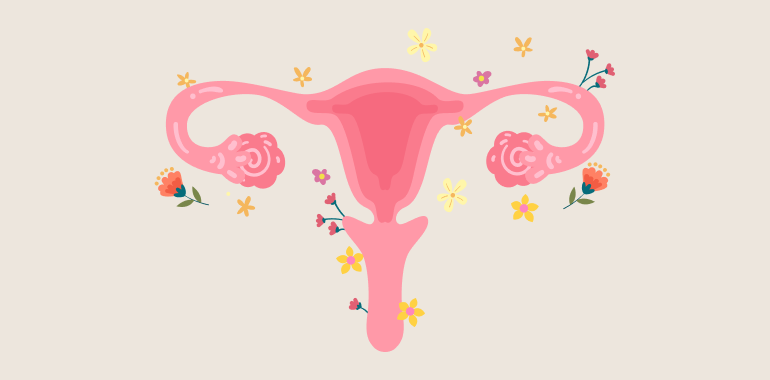Table Of Contents
Nutrition and Your Sex Drive: What You Need to Know
A healthy sex drive depends on more than just mood. What you eat directly impacts your hormones, blood flow, and energy levels—all crucial factors for sexual desire. When your libido takes a backseat due to stress, hormonal changes, or health issues, your diet might be the solution you haven’t considered.
This guide explores foods that increase female libido and how specific nutrients can reignite passion naturally. From hormone-balancing vegetables to blood flow-boosting fruits, these dietary changes could transform your intimate experiences without medication or supplements.

Aphrodisiac Foods That Turn Women On
Throughout history, certain foods have been celebrated for their ability to awaken desire. While scientific evidence varies, these aphrodisiac foods for females might be worth incorporating into your diet—whether they work through biochemical changes or simply create a sensual atmosphere.
Chocolate: The Sweet Mood Enhancer
Dark chocolate isn’t just a Valentine’s Day staple by accident. It contains phenylethylamine and serotonin, compounds that boost mood and potentially enhance sexual desire. The sensual experience of chocolate melting on your tongue creates a pleasurable sensation that can translate to bedroom activities. Opt for dark varieties with higher cocoa content for maximum benefits.
Spicy Foods: Raising Temperature and Arousal
Chili peppers and other spicy foods elevate body temperature and can mimic the physical sensations of arousal—flushed skin, increased heart rate, and heightened sensitivity. This physiological reaction might help trigger or enhance sexual desire. The endorphin release that follows spicy food consumption can also create a pleasurable, excited state conducive to intimacy.
Honey: A Sensual Addition to Intimacy
While honey lacks concrete scientific backing as a libido enhancer, its sensual texture and sweetness make it a playful bedroom addition. Ancient cultures revered honey for its supposed fertility benefits. Modern couples appreciate its versatility for creative intimate experiences. The natural sugars can also provide a quick energy boost for increased stamina.
Red Wine: The Confidence Booster
A glass of red wine can help lower inhibitions and reduce anxiety that might interfere with sexual pleasure. Research published in the Journal of Sexual Medicine suggests moderate red wine consumption may improve sexual function in women. The key is moderation—one glass may enhance desire, while excessive consumption has the opposite effect.
Science-Backed Foods to Boost Female Libido
Beyond traditional aphrodisiacs, certain foods offer more substantiated benefits for female sexual health. These options work by addressing the physiological foundations of arousal—improving blood circulation, balancing hormones, and providing essential nutrients that support sexual function.
Fruits That Increase Blood Flow and Arousal
Certain fruits act as natural vasodilators, enhancing circulation to genital tissues. Figs, dates, bananas, and avocados contain antioxidants and nutrients that promote blood flow—a crucial factor in female arousal. Watermelon contains citrulline, which converts to arginine in the body and helps relax blood vessels. Regular consumption of these fruits may gradually improve sexual response.
Asparagus: The Hormone-Balancing Vegetable
This nutrient-dense vegetable provides vitamin B6 and folate, essential for hormone regulation. These nutrients help increase levels of testosterone, progesterone, and estrogen while decreasing prolactin—a hormone that can suppress libido when elevated. Adding asparagus to your regular diet may help restore hormonal balance and rekindle desire naturally.
Beef: How Red Meat Supports Sexual Health
Lean beef provides saturated fats and zinc, both vital for hormone production and sexual health. The zinc in beef is particularly important for female sexual function, supporting proper ovulation and reproductive health. Choose grass-fed options for better fatty acid profiles and fewer added hormones. Even small portions can provide significant benefits.
Oysters: Zinc-Rich Seafood for Sexual Desire
The reputation of oysters as an aphrodisiac may be well-deserved. These shellfish contain exceptionally high zinc levels, a mineral directly linked to sexual health and fertility. Zinc deficiency can lead to decreased libido and sexual dysfunction. The sensual experience of eating oysters—typically accompanied by their briny flavor and silky texture—adds to their aphrodisiac quality.
Powerful Herbs That Enhance Female Arousal
Several herbs have demonstrated potential for improving female sexual function. Saffron, ginkgo biloba, and maca have all shown promise in scientific studies. These botanicals work through various mechanisms—improving mood, increasing blood flow, or balancing hormones. Fenugreek may help boost testosterone levels, while ginseng improves sexual arousal. These can be consumed as teas, supplements, or incorporated into cooking.

Drinks That Boost Female Sex Drive
What you drink can be just as important as what you eat when it comes to sexual health. Certain beverages contain compounds that stimulate desire and performance, offering both immediate and long-term benefits for female libido.
Coffee: The Stimulating Morning Ritual
Your morning cup does more than wake up your mind—it might also awaken your desire. Caffeine acts as a vasodilator that improves circulation, including to the genital region. A study published in the journal Pharmacology, Biochemistry, and Behavior found that female rats given coffee initiated sex more frequently with their partners. The energy boost from coffee might also combat fatigue that often suppresses libido.
Green Tea: Energy and Endurance Enhancer
This antioxidant-rich beverage offers sexual benefits through multiple pathways. Green tea contains catechins that increase energy and stamina—both valuable during intimate encounters. Its moderate caffeine content provides stimulation without the jitters coffee might cause. Regular consumption may also improve cardiovascular health, ensuring adequate blood flow needed for arousal and orgasm.
Also, read – How to Slow Aging with Fasting?
Essential Vitamins for Female Sexual Health
Proper nutrition forms the foundation of sexual health. Specific vitamins and minerals play crucial roles in hormone production, nerve sensitivity, and energy levels—all essential components of a healthy libido. Understanding these nutritional needs helps address the root causes of diminished desire.
Nutrient Deficiencies That Affect Your Libido
Even minor nutritional gaps can significantly impact sexual function. The following nutrients are particularly important for female sexual health:
- Vitamin A: Supports reproductive health and hormone production
- Vitamin B6: Regulates hormones and reduces PMS symptoms that can interfere with desire
- Folate: Works with B vitamins to balance hormones and improve mood
- Vitamin C: Boosts blood flow and improves mood
- Vitamin E: Improves circulation and may enhance vaginal lubrication
- Magnesium: Reduces stress and supports hormone production
These nutrients can be obtained through a balanced diet rich in fruits, vegetables, lean proteins, and whole grains. For those with significant deficiencies, targeted supplementation might be beneficial after consulting with a healthcare provider.
Foods That Kill Female Libido
Just as certain foods can enhance desire, others can dampen sexual response. Understanding which foods might be sabotaging your libido allows you to make dietary adjustments that support sexual wellness. Some culprits are surprising and often overlooked.
Beets: When Estrogen Goes Too High
Despite their nutritional value, beets can potentially disrupt sexual desire in some women. They stimulate estrogen production, which is beneficial for those with low levels but problematic for others. Excessive estrogen can create hormonal imbalances that reduce libido. If you notice decreased desire after adding beets to your diet, consider reducing your consumption to see if desire returns.
Alcohol: The Fine Line Between Help and Hindrance
While a single glass of wine might enhance desire, excessive alcohol consumption has the opposite effect. Alcohol impairs liver function and hormone metabolism, potentially leading to imbalances that suppress libido. It also reduces serotonin levels over time, affecting mood and sexual interest. The sedative effects can make you too tired for intimacy, and chronic use may lead to sexual dysfunction.
Salt: How Sodium Affects Arousal
High sodium intake restricts blood vessels and reduces genital blood flow, directly impacting arousal. Processed foods, canned soups, and salty snacks are particularly problematic. Sodium also contributes to water retention and bloating, which can make you feel less comfortable in intimate situations. Reducing salt intake may improve circulation and enhance sexual response.
Quinine: The Hidden Libido Reducer
Found in tonic water and some bitter beverages, quinine can suppress testosterone production—a hormone crucial for libido in both men and women. While not commonly recognized as a libido-dampener, regular consumption of quinine-containing drinks might contribute to decreased sexual interest. Consider switching to alternative mixers if you notice reduced desire.
Natural Ways to Increase Female Sensitivity
Enhancing sensitivity requires a holistic approach that includes diet, lifestyle, and mindfulness. A nutrition-focused strategy forms the foundation for improved arousal and satisfaction. By incorporating libido-boosting foods while eliminating those that dampen desire, you can create physical conditions that support sexual wellness.
Beyond the foods mentioned above, staying hydrated, maintaining a healthy weight, and getting regular exercise all contribute to optimal sexual function. Mind-body practices like yoga can increase body awareness and reduce stress that interferes with arousal. The journey to increased sensitivity starts with nourishing your body properly—giving it the specific nutrients needed for hormone balance, energy, and blood flow that drive desire.
Low libido doesn’t have to be a permanent condition. Through intentional food choices that support your sexual health, you can naturally revitalize your desire and enhance intimate experiences. Start incorporating these libido-boosting foods into your meals today, and you might notice positive changes sooner than you expect.











Thanks for the informative article! I especially appreciate the focus on natural ways to boost libido, like incorporating zinc-rich foods, and after reading I understand the negative connection between quinine and libido. I’m excited to try some of these tips!
Hello, Mary👋
Best of luck incorporating zinc-rich foods and exploring the natural tips to boost libido.